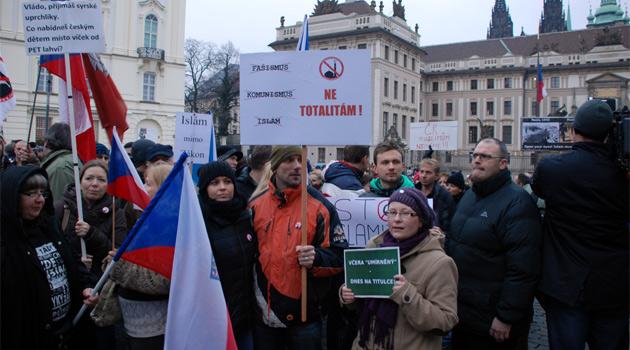Czech counter-intelligence disrupted Russian hacker spies and Hezbollah network, warns ultra-right targeting of Muslims could contribute to radicalization

The Security Information Service (BIS) and the National Headquarters against Organized Crime have detected and disrupted a network in the Czech Republic that was created by the Federal Security Service (FSB), Russia’s intelligence operation. Speaking at a security conference in the lower house last week, BIS director Michal Koudelka informed Czech legislators of the achievement.
The network was financed from Russia and its embassy to the Czech Republic and attacked targets in the Czech Republic as well as partners of the Czech Republic abroad through a network of servers. Koudelka also warned that domestic right-wing extremism in the Czech Republic is a concern.
Disruption of a Russian spy network
“The network has been totally disrupted, decimated thanks to the excellent work of the National Headquarters against Organized Crime. The investigation is continuing. We have prevented this activity taking place from within the territory of the Czech Republic as a link in a bigger chain that the Russians were exploiting and preparing to take advantage of in other European countries,” Koudelka said.
In the Czech Republic, according to the counter-intelligence head, the network was being built by the FSB. “It was created by people with connections to the Russian intelligence services and it was financed from Russia and its embassy,” he said without providing further details.
Information about the intervention could be one component of the annual report for 2018 soon to be released by BIS. That report was meant to be reviewed last week by the commission in the lower house that monitors the activities of the secret service and in the past has customarily been published by the end of each year.
According to the RESPEKT weekly, the Czehc counter-intelligence operation happened at the beginning of this year and concerned a group of Russian citizens and several other Russians who had obtained Czech citizenship. The group is said to have functioned under the cover of running two private firms in Prague.
Those firms are said to have sold computer hardware and software to ordinary customers while simultaneously committing hacking attacks. In the long term, the intelligence activities of both China and Russia are perceived by Koudelka and his office to pose the most serious national security threat to the Czech Republic.
China, according to the counter-intelligence head, is talent-scouting scientists and other important figures in the Czech Republic, inviting them to China, and doing its best to recruit them to China’s side so as to acquire information from them. The Chinese are also doing their best to recruit informers from the Czech armed forces and the police.
Disruption of Hezbollah’s Internet network
The National Headquarters against Organized Crime and the counter-intelligence services also jointly destroyed a network of servers on Czech territory created by Hezbollah, a Lebanon-based movement of Shiites. In the short term, BIS has said it considers Islamist terrorism to pose the most serious threat to the Czech Republic.
“In the Czech Republic, the situation is still relatively calm, at this moment we do not have any information about a direct threat inside the Czech Republic [from Islamist terrorists],” Koudelka told the lower house. According to him, the Czech Republic is more of a transit country for migrants who might eventually pose such a threat than it is a final destination, while the domestic Muslim community is not radicalized and is small.
Beware right-wing extremism
During the conference, the counter-intelligence head also warned against the threat posed by right-wing extremism. According to him, while the number of active right-wing extremists in the Czech Republic has declined, it cannot be ruled out that the situation could change for the worse.
Koudelka pointed out that right-wing extremists in Germany and New Zealand committed terrorist attacks this year. He said such attacks could serve to motivate other right-wing radicals elsewhere to commit such crimes of their own.
The counter-intelligence head also warned that extremist crimes targeting the community of Czech Muslims could also radicalize them. As a consequence, in his view, the risk of Islamist terrorism in the Czech Republic could increase, which is what BIS considers the most serious short-term security threat to the country.
